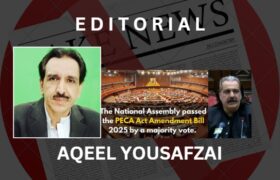Iqbal and Muslim Ummah
By: Amna Noreen
Allama Iqbal remains one of the Muslim world’s most brilliant thinkers born in the last 300 years. He inspired millions worldwide with his spiritual awareness believing that modern thought processes lacking a spiritual component would lead the world into chaos in the future. Materialism will split societies and humans apart. Iqbal wished for Muslim youth to be inspired by Islam’s dynamic thought process as demonstrated by Muslims of the Golden Age and to provide solutions for humans in modern times where many false gods had emerged.
Iqbal went to Europe and became a philosopher. It was he who introduced others to European schools of philosophy. His refusal to surrender to Western ideas sets him apart from other philosophers of that era. Several European countries, including Germany, are still influenced by his ideas of justice and human freedom today.
Iqbal was dissatisfied with the dualist education system because it divided education into ‘secular’ and ‘religious’ segments, even within the Muslim world. He complained that this segmentation had failed to achieve its goal of producing falcon-like young Muslims: “I am seriously disappointed with those in charge of running our schools because they are training them to lead a life of lowly and aimless wandering devoid of any serious devotion to a worthy cause.” This again proves him as a seer while the world is struggling to grapple with the impact of materialism and its pursuit by youth even now because in modern times mental health issues caused by the curse of materialism have come to the fore unlike any time earlier in history.
Iqbal outrightly rejected the concept of splitting politics and human relations from faith, ethics, andmorality. This was again in line with his rejection of the education system in the Indian subcontinent. hollow hyperbole and rituals: “The religious elite have lost all the wealth of spirituality and wisdom; who is the temptress that has robbed them of such a valuable commodity?” Iqbal firmly believed that the divorce of religion and politics was antagonistic to the spirit of Islam: “Be it the royalism of monarchs or the jugglery of the democrats, if one separates religion from politics one is left to face the barbarism of Genghis Khan.”
Iqbal correctly prophesied what most Muslims around the world face today: reliance on foreign beliefs and ideologies, and ultimately submitting to the vagaries of their leaders. Iqbal identified that, given the hegemonic colonial powers’ technological prowess and the opportunities and challenges that globalization presents, the Ummah would suffer not only from inferiority complexes and subservience mindsets but also from the despondency of emotional exhaustion caused by ditheism. In modern times, this has become a dilemma for Muslims and Islam itself as this submissive behaviour of Muslim leadership has created sheer reactionary forces among Muslim societies who react violently when they feel their rights are denied by the global order.
To Iqbal, myopic nationalism, patriotism limited to narrow geographical borders, and democracy in the liberal-western style are all new gods created by mankind for self-delusion. He strived his entire life to make the Muslims understand that the leaders or concepts and ideas that rebelled against God’s commands can’t give true freedom and justice to them. Iqbal believed that this following of modern thought process of Godless political order will divide Muslims even more and that’s exactly what has happened over the period of the last century.
Only youth can persuade modern Muslim minds that any Muslim movement must include all social classes among all Muslims worldwide, including the significant Muslim minorities living in the West. This is why it is critical to spread Iqbal’s spiritual awareness, which can cause restlessness: the spark, the inner fire among Muslim youth in order for them to aspire to an unwavering commitment to truth and justice.




